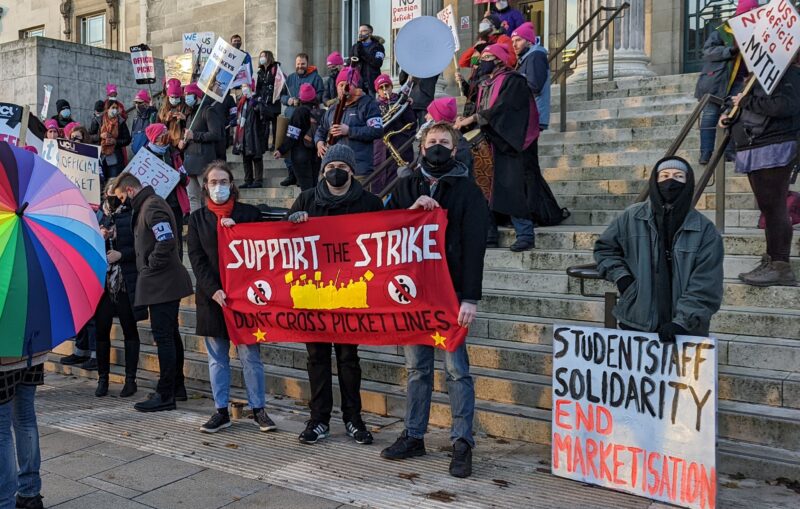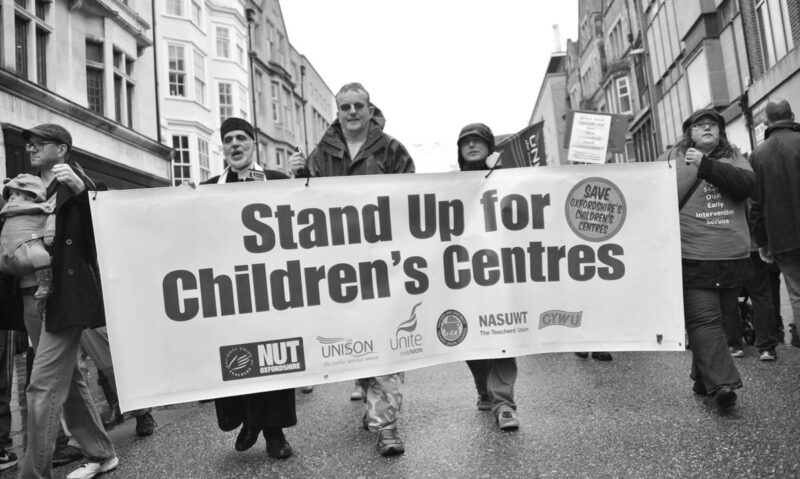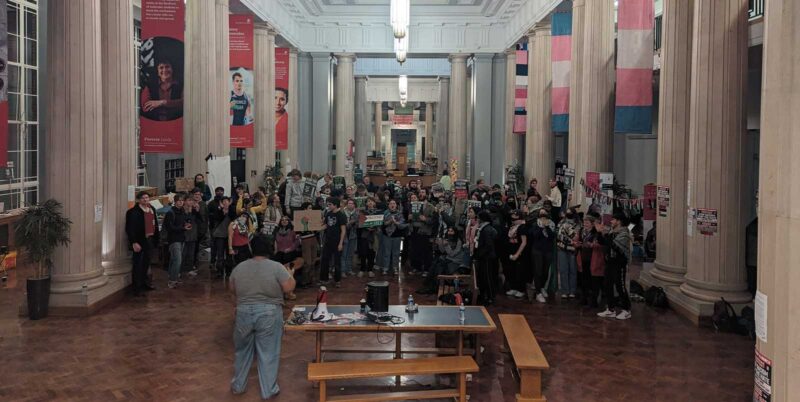Student strikes rock Quebec and Chile
Students in Québec, Canada have been on strike for three months against the government’s attempts to raise university tuition fees, while Chilean students are protesting for reforms in the public education system, writes KD Tait
 THE GENERAL unlimited strike, organised by a coalition of student federations, started on February 13 and has drawn in more than 190,000 students across the province. Tuition fees, currently C$2168 per year, have increased by 300 per cent since 1989.
THE GENERAL unlimited strike, organised by a coalition of student federations, started on February 13 and has drawn in more than 190,000 students across the province. Tuition fees, currently C$2168 per year, have increased by 300 per cent since 1989.
Over the 12-week campaign, Québec students have demonstrated what a national student leadership that is accountable to its members can achieve.
The Québec Liberal Party government, backed by bosses’ organisations and the provincial riot police, have done its best to defeat the movement. The students and their federations have seen off government-sponsored scabbing, mass arrests and rubber bullets.
But while the violence and longevity of the protest has surprised many, Québec students have a record of resisting attacks on education. Big strike waves in 1996 and 2005 slowed the price hikes, but did not defeat the government.
However, the idea that ‘resistance works’ is borne out by the fact that tuition fees in the rest of Canada are more than double those in Québec. Opposition to tuition fees is not undermined by arguments that Québec should ‘catch up’ with the rest of Canada, but rather is strengthened by the knowledge that social conquests such as education, health and social services can only be maintained if they are fought for.
Austerity
Canada might seem a world away from the austerity regimes that are plunging Europe into deeper austerity in a vain – and unsuccessful – bid to stave off a double-dip recession. But like their UK counterparts who sparked a wave of resistance to Con-Dem cuts, Québec students recognise that attacks on education are merely the herald of further cuts in wider society.
There is no doubt that the most organised Canadian workers understand this too, reflected by the practical support of many trade unions which led to a 200,000-strong march through Québec City on 26 March. The strength of the movement has no doubt shaken the government, who view education reform as key to softening opposition to more fundamental reforms to workplace rights, jobs and welfare.
An ‘agreement in principle’, which is being brokered between the Education Minister Line Beauchamp and leaders of Québec ’s largest student federations, is the most serious threat to the movement yet seen. After an offer to spread price hikes over five years instead of seven was rejected, the government’s latest concession is a six-month freeze on price rises.
This sham is nothing more than an attempt to demobilise resistance, removing students from the arena of struggle so that the government can concentrate on ‘reforming’ the rest of the welfare system.
The offer must be put to a vote of all the students involved in the struggle. The ‘concession’ is in reality nothing of the sort – it simply demonstrates that the government has no intention of backing down on higher education reform.
Therefore, we think students should reject the sell-out deal and press their leaders to escalate the struggle.
More than education
At this level of mobilisation, where government and its repressive apparatus in the police, media and courts faces the collective power of organised young people, the struggle becomes about much more than the accessibility of Québec’s universities. While the social status of students enables them to play the role of ‘detonator’, the implications of this struggle go far beyond defending the material privileges of a section of society. A defeat for the movement in Québec will be the signal for a general offensive against what remains of the state’s obligations to society.
With the intransigence of the government matched only by the determination of the students, the movement awaits the entry of a decisive force to swing the balance. The student strike is a source of politicisation and channels social anger against the government. But it does not have the economic muscle to hit the bosses where it hurts – in the pocket.
As the slow but inexorable rise in tuition fees shows, it will take the weight of the working class – millions strong – to achieve a sectional victory for students and a class victory against the government, in defence of wider social services.
CLASSE, the most radical student federation representing nearly 100,000 students in 57 different organisations, is appealing for a ‘social’ general strike. This is great, but the bitter experience of the UK student struggles in 2010/11 teaches us that trade union leaderships are deaf to appeals for solidarity action, i.e. a political struggle in defence of another section of society needs pressure from grassroots union members.
The potential power that Britain’s students glimpsed in November 2010 was frittered away by disunity and the delayed action of the trade unions. As a result, young people have been largely absent from the great set-piece confrontations in the past year.
Linking the struggles and turning to the unions
Québec’s rulers don’t fear the union leaders, as they’ve been doing business together for decades. What they fear is the anger of the youth who have no job, no prospect and therefore no stake in society.
If the working class is to be mobilised in this struggle then the students must organise beyond the official bureaucratic routes – they need to send delegates to union branch meetings and invite union branches to send their delegates to students’ assemblies.
Building practical links is the first step, but on what basis can Québec’s youth achieve joint action with the organisations of the working class? The message must be: first they come for the students, next they will turn on the workers. From Greece to Chile, education reforms have been the opening skirmish in the global assault on the social wage – schools, pensions, health and housing.
If the government says there is no money for education, what stops them from saying there’s no money for healthcare or housing or jobs? Like healthcare, housing and a living wage, education is a right.
Fighting to keep and to extend rights across a whole society is impossible without mobilising the majority – the working class – behind that struggle.
Student organisations should appeal to unions to unite the resistance. A general strike to defend education is no instant fix, but it will take the struggle to a new level. If the working class sits on the sidelines, the government will be able to isolate the students.
But with a working class mobilised in conscious defence of its interests, alongside the students, the stage will be set for a decisive confrontation with the ranks of the privileged represented by the government on one side and the millions who continue to be ground down by their attacks in one of the world’s richest countries on the other.
Chile
AT LEAST 50,000 students took part in May Day protests in Chile calling for serious reforms to the public education system. For more than a year Chilean students have waged an intensive campaign to win free education for all.
Only 45 per cent of high school students study in traditional public schools and the education system is largely in private hands, but heavily subsidised by the government.
Over the past 12 months, however, education is just one factor in the demonstrations which have mobilised millions across the country, giving voice to the rising tide of anger at failures to stem Chile’s growing inequality.
“We will carry on making history… We students will not give up the fight to make education a public right,” argues student leader Gabriel Boric.
Although to date their main goals have not been achieved, the students have contributed to falling support for millionaire media mogul and president, Sebastian Pinera, which was measured at 26 per cent in August and has not risen since.
In an attempt to counter this bad press, Pinera has introduced new tax reforms (around £443 million), some of which will be pumped into education.
But another tax-payer subsidy to the profiteering private education institutions won’t satisfy students – especially not the huge numbers of school-age students who have occupied their schools and marched in the streets.
The drive to extend state-funded education to all, and to break the power of business over education reflects the social pressure sustaining the mobilisations. But the lesson of Britain in 2010 and today in Québec is that victory is can only be achieved by fusing the struggle for education with a wider working class struggle that raises the question of who society benefits.
If the capitalist model cannot provide jobs, then it certainly can’t provide free education. That’s why we support an alternative that is based on organising all society’s productive forces to meet the needs of the majority who create wealth, not the minority who accumulate it.
For the billions in the world for whom education and workplace rights remain a pipedream, the enthusiastic resistance sweeping the Americas is an inspiration.
In all the struggles lies the germ of social revolt which demands the social wealth we create is distributed evenly, that the services we have invested in are defended from privatisation, and that where no compromise is found, then a genuine alternative is put forward.











